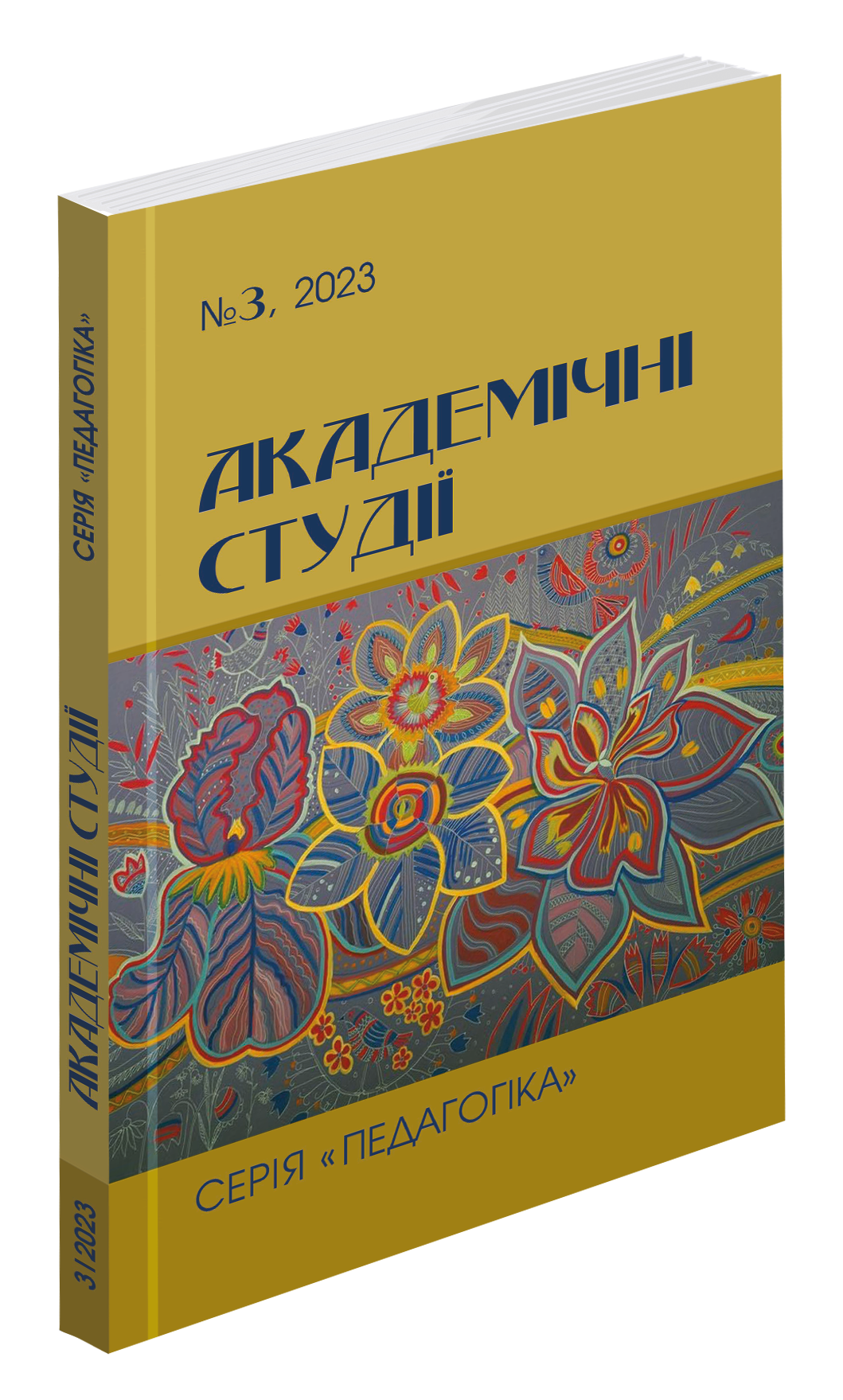Abstract
The article highlights the issue of forming digital competence (DC) as an important component of the professional training of future documentation specialist in the higher education system. The essence of DC and its components are analyzed. The principles of forming the DC of future documentation specialist are defined and characterized, in particular: integrity, consistency, active activity, continuity, self-education. The conditions that contribute to the effective formation of DC of future documentation specialist in HEI are analyzed: updating of educational programs; practical focus of training; functioning of electronic platforms and environments, implementation of electronic educational resources; developed IT infrastructure of HEI. Modern tools that contribute to the formation of DC are identified, in particular: interactive, multimedia and cloud technologies, gamification, mobile applications etc. Effective methods and forms that should be used in the educational process are: online lectures, use of electronic educational courses, mentoring, trainings, problem-searching presentation of information, presentations, creative projects and others. Emphasis is placed on the importance of continuous development and improvement of the DC of teachers of HEI with the help of online courses, webinars, trainings etc. It was concluded that modern conditions require updating approaches to the professional training of future documentation specialist. In particular, it is necessary to update educational programs, taking into account the digitalization of document studies, to ensure students’ access to modern technologies and infrastructure, to improve the qualifications of teachers in the field of digital technologies, to promote the motivation of students to acquire digital knowledge and skills.
References
Вербовецький Д., Олексюк В. Використання середовища геймифікації у процесі розвитку фахової цифрової компетентності бакалаврів інформатики. Цифрова компетентність сучасного вчителя нової української школи: 2022 (Безпечне середовище для учнів та вчителів: виклики та практичні рішення): зб. матеріалів всеукр.наук.-практ. семінару (Київ, 3 березня 2022 р.) Інститут цифровізації освіти НАПН України. Київ, 2022. С. 5–8.
Генсерук Г. Р. Цифрова компетентність як одна із професійно значущих компетентностей майбутніх учителів. Open educational e-environment of modern University. 2019. № 6. С. 8–16.
Плужник О. Формування цифрової компетентності у майбутніх фахівців із документознавства та інформаційної діяльності. Соціум. Документ. Комунікація. 2021. № 1(13). С. 331–344. DOI: https://doi.org/10.31470/2518-7600-2021-13-331-344
Поскрипко Ю. А., Данченко О. Б. Компетенція і компетентність: консенсунс. Вчені записки Університету
«КРОК». 2019. Вип. 3(55). С. 117–127. https://doi.org/10.31732/2663-2209-2019-55-117-127
Рамка цифрової компетентності для громадян України. URL: https://thedigital.gov.ua/storage/uploads/files/news_post/2021/3/mintsifra-oprilyudnyue-ramku-tsifrovoi-kompetentnosti-dlya-gromadyan/%D0%9E%D0%A0%20%D0%A6%D0%9A.pdf
Хмельницька О., Ткаченко Л. В. Шляхи вдосконалення цифрової компетентності майбутніх педагогів під час організації освітнього процесу у закладі вищої освіти. Вісник Черкаського національного університету імені Богдана Хмельницького. Серія : Педагогічні науки. 2021. Вип. 1. С. 89–94.
Чернякова Ж. Змістова характеристика інформаційно-цифрової компетентності майбутнього вчителя Нової української школи. Педагогічні науки: теорія, історія, інноваційні технології. 2021. № 10(114). С. 112–123.
Falloon G. From digital literacy to digital competence: The teacher digital competency (TDC) framework. Educational Technology Research and Development. 2020. 68(5). 2449–2472. https://doi.org/10.1007/s11423-020-09767-4/
Inamorato dos Santos A, Chinkes E, Carvalho, Marco A. G., Solórzano Claudia M. V., Marroni Lilian S. The digital competence of academics in higher education: is the glass half empty or half full? International Journal of Educational Technology in Higher Education. 2023. 20:9.
Su J., Yang W. Digital competence in early childhood education: A systematic review. Education and Information Technologies. 2023. https://doi.org/10.1007/s10639-023-11972-6
Tondeur J., Howard S., van Zanten M., Gorissen, P., van der Neut, I., Uerz, D., Kral M. The HeDiCom framework: Higher Education teachers’ digital competencies for the future. Educational Technology Research and Development. 2023. 71. 33–53. https://doi.org/10.1007/s11423-023-10193-5

